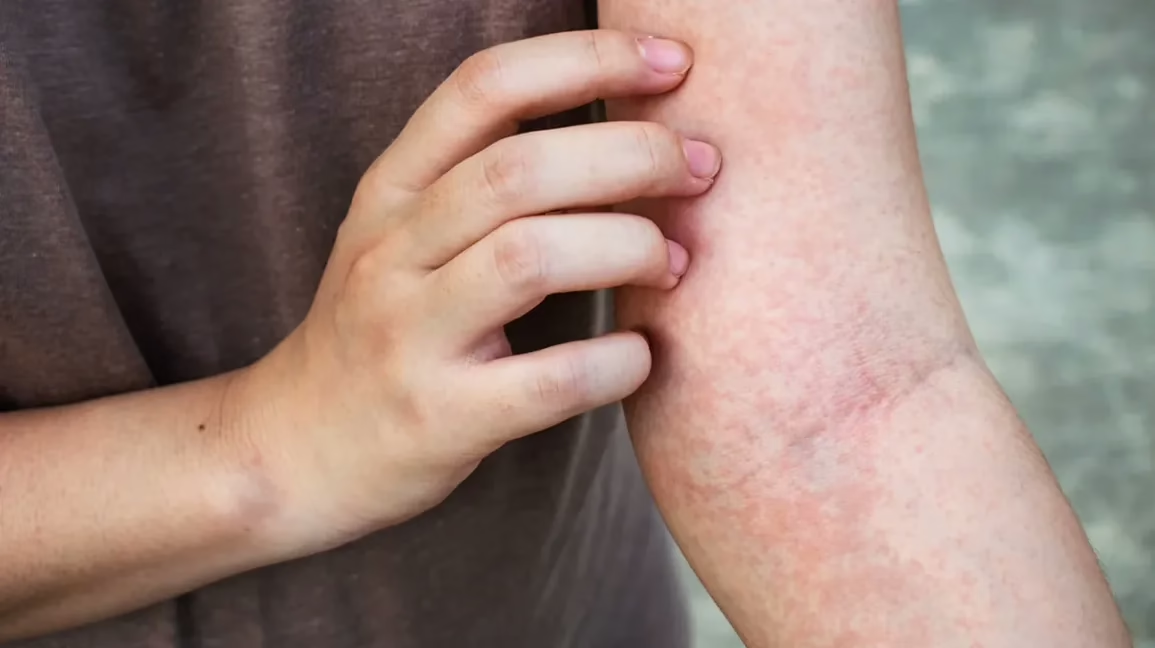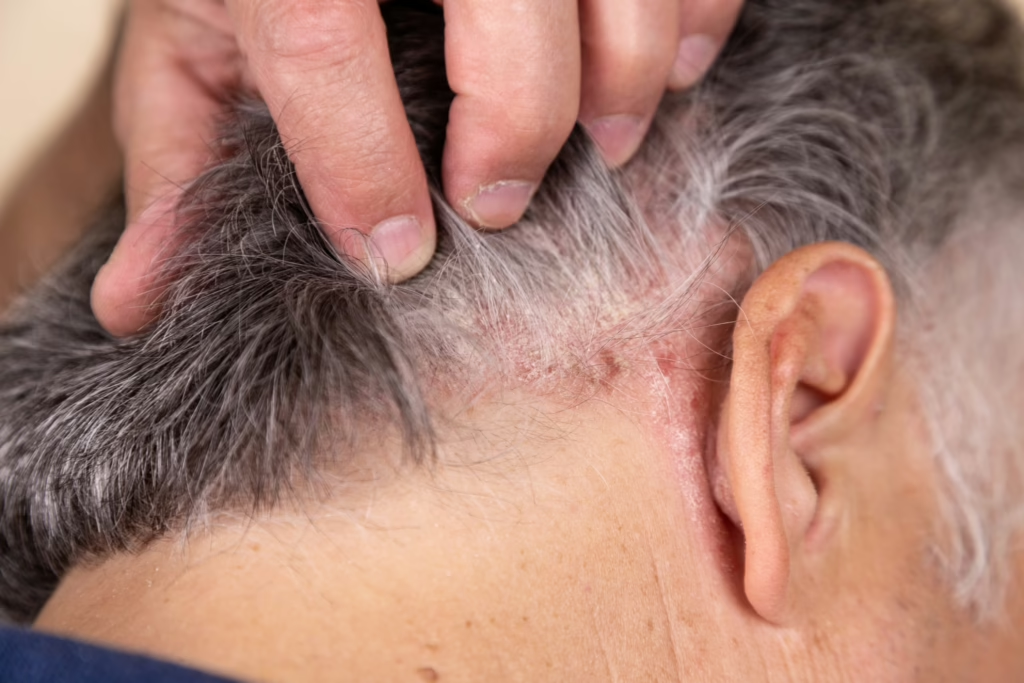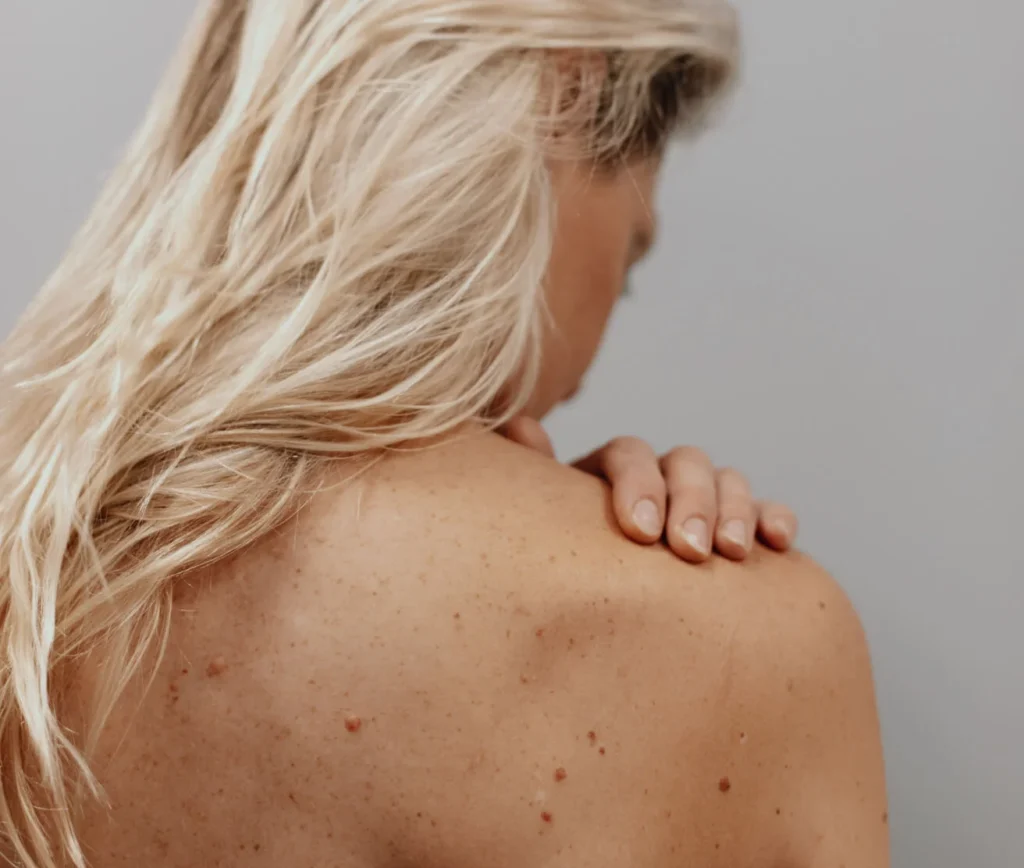
One of the top things people wonder when they identify something abnormal on their skin spot, patch, or bump that they suspect might be skin cancer is: Does skin cancer itch? Symptoms can vary quite significantly from person to person – but it’s important that people know what an early warning sign might be, so they know when to seek professional medical help.
At Wall Dermatology, we help patients notice and treat skin changes early. Here’s what you should know about how skin cancer feels and how to tell the difference between a harmless irritation and something more serious.
Table of Contents
ToggleKey Takeaways
- Skin cancer doesn’t always itch or hurt.
- Watch for ongoing discomfort or changes in texture.
- Be cautious of spots that don’t heal.
- See a dermatologist as soon as possible for evaluation.
- Early detection can increase survival chances.
Understanding the Question: Does Skin Cancer Itch?
“Does skin cancer itch?” is one of the most commonly asked questions, and they do so because they’ve felt a patch or mole that feels different. In some cases, yes — certain types of skin cancer can make you itch and feel tender or painful. This occurs when abnormal cells annoy the surrounding nerves, or with inflammation within the area. But not all spots that itch are cancer. Dry skin, eczema, or bite(s) from an insect can also produce similar irritation. The key sign to watch for? Restraint.
When Skin Cancer Causes Pain or Sensitivity
Pain can also be a difficulty for those residing with skin cancers, such as squamous mobile carcinoma, which might also feel similar to an itchy rash when touched. Contact with basal cell carcinoma frequently outcomes in stinging, stress, or sharp ache upon touch, while melanomas typically gift as dark-skinned growths that bleed easily.
So if you ask yourself: “Does skin cancer itch or cause pain at the same time?”, sometimes both symptoms are present together. Any spot that changes in texture or sensation should not be ignored. The experts at Wall Dermatology recommend a professional check to confirm what is happening and begin treatment early if needed.

Visual Clues: How to Spot the Difference
Even if you are not sure a mole or patch disturbs or itches, its look can be telling. A sore that doesn’t heal quickly can be a sign; red, brown, and black patches with uneven borders might signal trouble; nor should anyone ignore moles that grow fast, turn raised, bleed easily, or form bumps that either bleed or crust.
If any of the symptoms listed here–particularly itching or tenderness–appear, this could be an early indicator of skin cancer. Asking yourself, “Does skin cancer itch?” is only part of the equation; your dermatologist needs a full picture in order to properly identify what it is.
Why Early Detection Matters
Skin cancer is much more easily treated when caught early. Continuing irritation or pain can cause the cancer cells to grow more deeply into your skin and to spread. At Wall Dermatology, we have access to state-of-the-art equipment for early detection of skin changes with close visual inspection and biopsies (if necessary).
What’s more, if you see a dermatologist early on, the treatment can be simple and recover faster. It also minimizes scarring and long-term damage.
Taking Action: When to See a Dermatologist
If you note a brand new or changing mole that itches or hurts, or tough or scaly patches that might not heal, reddened pores and skin, swelling, and oozing areas wanting similar examination, in addition to spots that bleed without difficulty or don’t heal, make an appointment at once with a company to be tested similarly. Bleeding spots could suggest an underlying scientific situation.
If you’re in doubt, it’s better to get it checked out. Lots of patients who come to Wall Dermatology are bothered about a minute skin problem leave the office feeling quite happy now that they’ve clear answer from our experts.
Conclusion
Itching or pain on your skin may not necessarily signal cancer, but should never be disregarded. Everyone’s skin responds differently, so making assumptions can be dangerous; for this reason, it is best to seek professional advice when inquiring if a skin cancer itch or investigating strange spots on your body is suspected.
Wall Dermatology‘s primary goal is to detect, prevent, and treat all forms of skin cancer. Regular screenings, sun protection measures, and expert guidance all play an integral part in keeping our clients’ skin healthy and safe.

📞 Schedule Your Skin Check with Wall Dermatology
Your skin deserves expert care. Whether you have an itchy spot, mole or patch that won’t heal, Wall Dermatology is here to help. Our experienced team can identify and treat any skin problem with care and precision.
Contact us today! Visit https://wallderm.com/ to book your appointment or learn more about our services.
Frequently Asked Questions
Q: Are all forms of skin cancer itchy?
A: Not necessarily; certain varieties may only itch occasionally while others don’t produce any symptoms at all. Persistent itching that doesn’t go away should be checked immediately for possible cancerous cells.
Q: Can an itchy mole be cancerous?
A: Yes, any change in moles’ color, shape, or itching could be an early warning sign of skin cancer, melanoma, or another type.
Q: How can I identify whether my skin irritation is cancerous or simply irritating?
A: If irritation persists for more than a few weeks, changes appearance, or bleeds easily, make an appointment with Wall Dermatology immediately.
Q: What areas are most prone to itchy skin cancers?
A: They usually appear on sun-exposed areas such as the face, scalp, arms, and legs, but may occur anywhere on your body.
Q: How frequently should I receive a skin exam?
A: Adults should undergo a full-body skin exam once every year. Individuals exposed to excessive sun may need periodic exams more frequently; others who have had a previous skin cancer risk could require more frequent checks.
